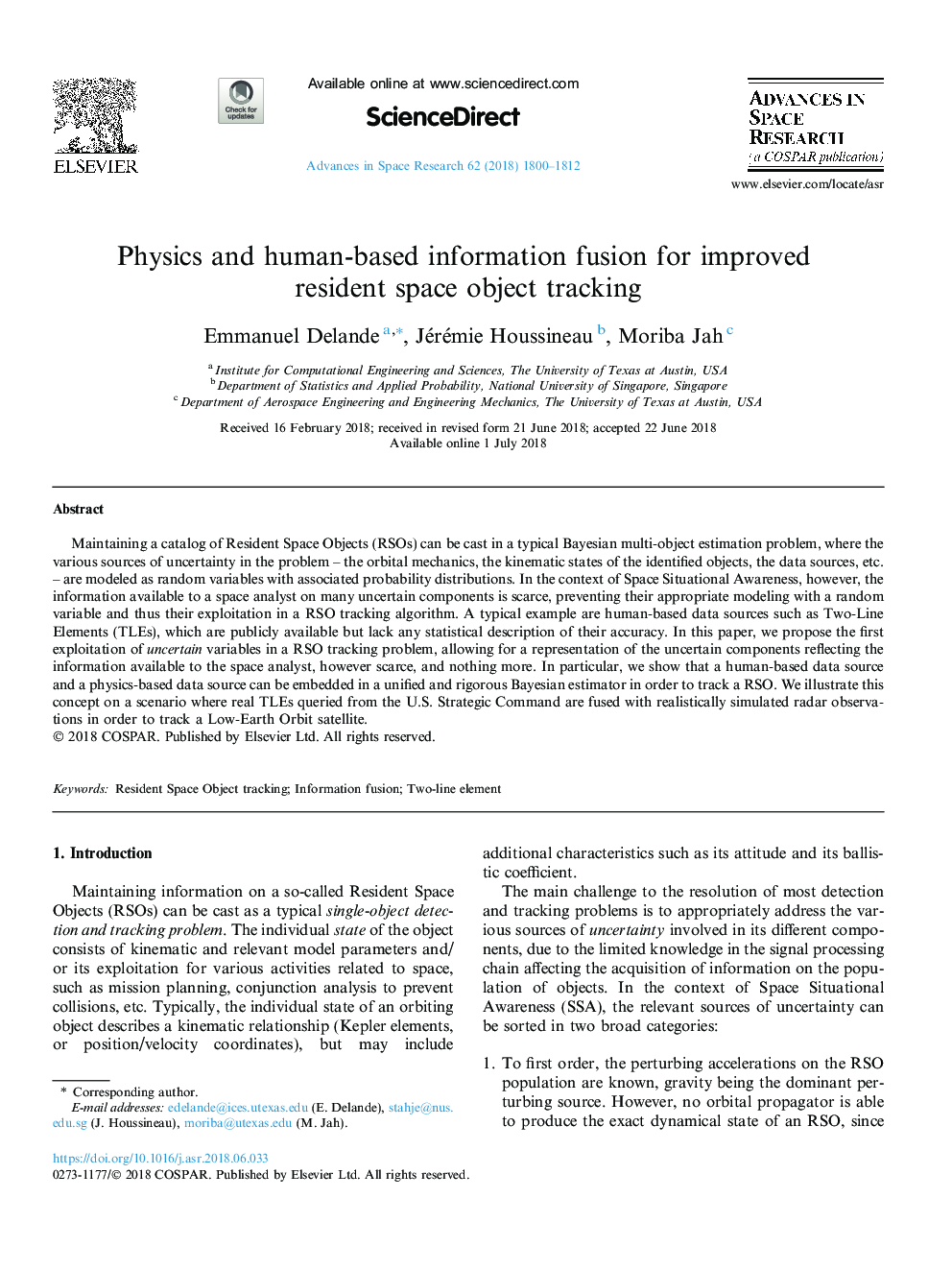| Article ID | Journal | Published Year | Pages | File Type |
|---|---|---|---|---|
| 8948928 | Advances in Space Research | 2018 | 13 Pages |
Abstract
Maintaining a catalog of Resident Space Objects (RSOs) can be cast in a typical Bayesian multi-object estimation problem, where the various sources of uncertainty in the problem - the orbital mechanics, the kinematic states of the identified objects, the data sources, etc. - are modeled as random variables with associated probability distributions. In the context of Space Situational Awareness, however, the information available to a space analyst on many uncertain components is scarce, preventing their appropriate modeling with a random variable and thus their exploitation in a RSO tracking algorithm. A typical example are human-based data sources such as Two-Line Elements (TLEs), which are publicly available but lack any statistical description of their accuracy. In this paper, we propose the first exploitation of uncertain variables in a RSO tracking problem, allowing for a representation of the uncertain components reflecting the information available to the space analyst, however scarce, and nothing more. In particular, we show that a human-based data source and a physics-based data source can be embedded in a unified and rigorous Bayesian estimator in order to track a RSO. We illustrate this concept on a scenario where real TLEs queried from the U.S. Strategic Command are fused with realistically simulated radar observations in order to track a Low-Earth Orbit satellite.
Keywords
Related Topics
Physical Sciences and Engineering
Earth and Planetary Sciences
Space and Planetary Science
Authors
Emmanuel Delande, Jérémie Houssineau, Moriba Jah,
